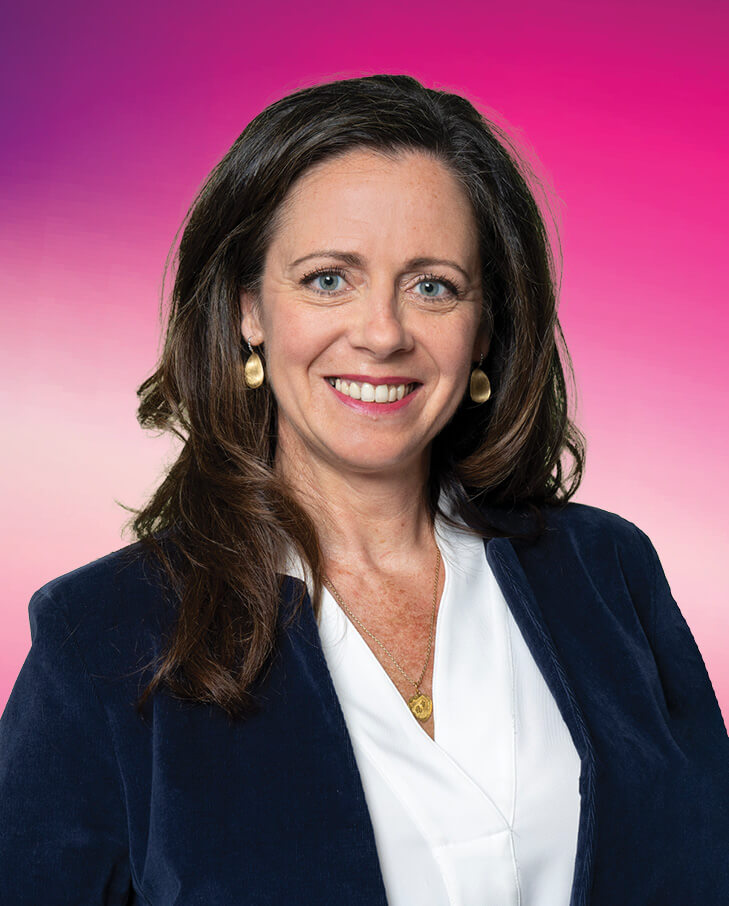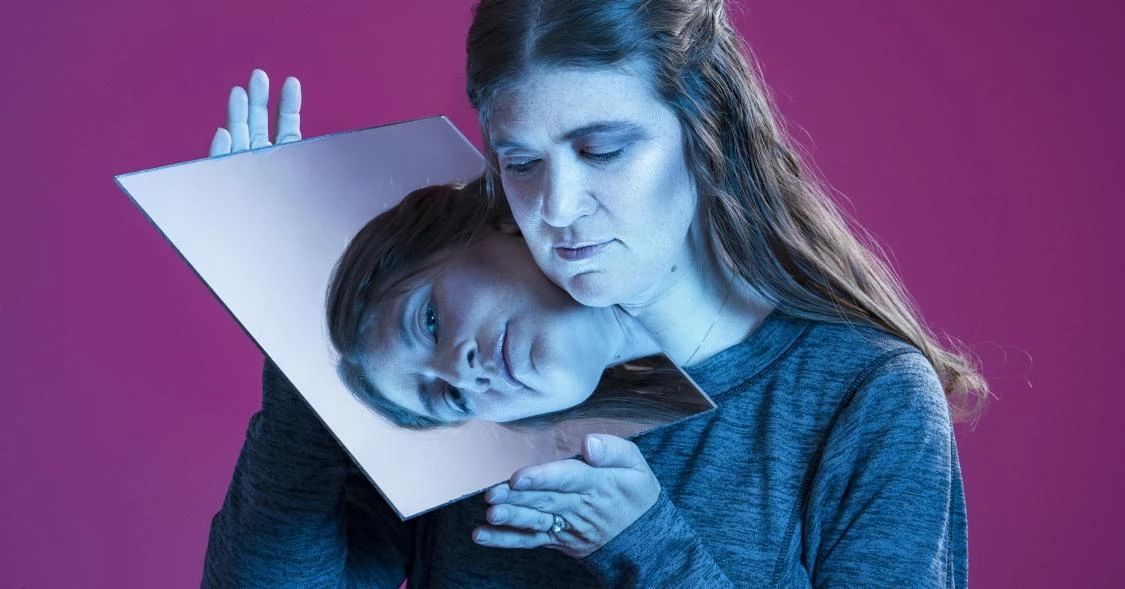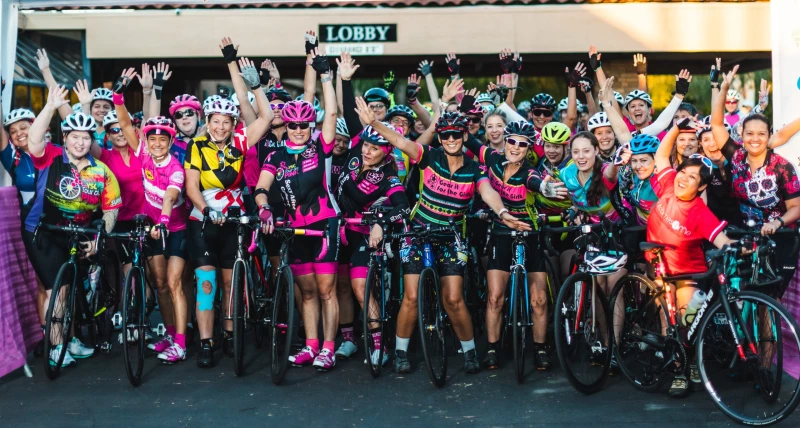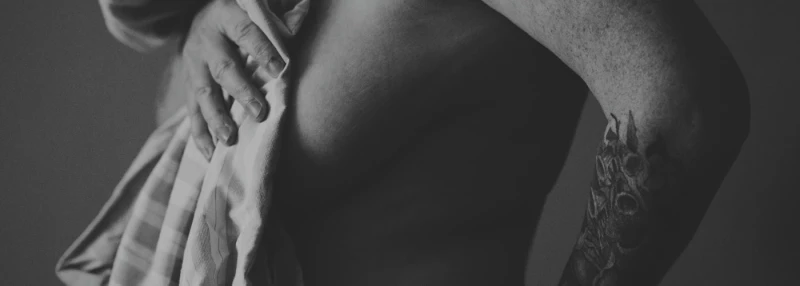
I think it’s pretty safe to say we're all aware that tomorrow marks the start of Breast Cancer Awareness Month. You’re probably reading this wondering what YSC has in store this year as we take the stage and raise our voices to the world on behalf of all young women facing breast cancer.
This year is especially important. Breast cancer is officially an epidemic, with an annual increase in incidence of 3.1%. Young women make up 33% of global diagnoses, and women of reproductive age are dying from breast cancer at an annual increase of 1.8% per year.1 Letting people know that young women can and do get breast cancer just isn't enough. This year alone, more than 12,000 women under 40 will be diagnosed in the U.S.2
We need to do more. That's why this October we're on a mission to turn awareness into action to change the statistics. Together, we're going to drive the medical and research communities to focus more research on women under 40—especially those with metastatic breast cancer—to ensure that young women stop dying from this disease.
Here are nine startling reasons why you MUST join us this month by signing our #12Ktoomany petition:
1.) Breast cancer is the most common cancer in women ages 15-39.3 And yet, breast cancer in young women is rarely studied. We have only made incremental strides toward understanding the environmental factors (internal and external) that cause breast cancer in young women and how to best treat them.
2.) There is no effective breast cancer screening tool for women under 40, most of whom have dense breast tissue that prevents routine mammograms from being a useful screening tool. Nearly 80% of young women diagnosed with breast cancer find their breast abnormality themselves.4
3.) More and more evidence tells us that breast cancer before age 40 differs biologically from the cancer faced by older women.5 This means we need different treatment options.
4.) Breast cancer in women under 40 is more aggressive.6 Young women face greater mortality rates and an increased risk of metastatic (or stage IV) recurrence, which is when cancer spreads to other parts of the body.
5.) There is no cure for metastatic breast cancer. Every year, more than 1,000 women under age 40 die from breast cancer.2
6.) Breast cancer treatments like chemotherapy negatively affect fertility. Doctors don’t always discuss the potential fertility risks with their young patients before treatment, but they should.
7.) Breast cancer treatment brings unique, significant side effects for young women, including the possibility of early menopause, sexual dysfunction and a higher prevalence of psychosocial issues like anxiety and depression.7
8.) Breast cancer disproportionately affects young African American women. African American women under age 35 have rates of breast cancer two times higher than caucasian women under age 35, and they die from breast cancer three times as often.8
9.) Vice President Biden’s Moonshot Advisory Panel recently issued its top ten opportunities in cancer research. While identifying pediatric cancer as an appropriate area to focus, it completely overlooked and failed to mention adolescent and young adults (AYAs), ages 15 to 39.
We’re collecting 12,000 signatures to support our #12Ktoomany initiative, representing the number of young women who will be diagnosed with breast cancer this year. In January, we’ll present it to the new President of the United States. Whether you are a young woman diagnosed with breast cancer, love a young woman diagnosed with breast cancer, or just care about putting a stop to this disease, I hope you’ll sign. It only takes a minute, and it can make a huge difference.
To sign the petition, visit petition.youngsurvival.org
We also partnered with renowned photographer, Spencer Kohn, on a photo series where breast cancer survivors confront their struggles. In their portraits, we see the external: the face that society sees. Strong, beautiful, but a mask. When they look in the mirror, we see the truth—a reflection of breast cancer’s collateral damage on these young women.
Zach Jopling, a Brooklyn-based DP and editor, captured the stories and experiences of these breast cancer survivor models in a powerful video.
We'll be sharing these incredible photos and quotes from each survivor model every day on Facebook, Twitter and Instagram. Follow along, engage, share and help us spread the word!
Citations
1 Forouzanfar M et al., “Breast and cervical cancer in 187 countries between 1980 and 2010: a systematic analysis,” Lancet 2011; 378: 1461-84.
2 American Cancer Society. Breast Cancer Facts & Figures 2015-2016.
3 Archie Bleyer et al., “The distinctive biology of cancer in adolescents and young adults,” Nature Reviews Cancer 8 (2008).
4 Ruddy, K. et al., "Presentation of breast cancer in young women," Journal of Clinical Oncology 27:15S (2009).
http://hwmaint.meeting.ascopubs.org/cgi/content/abstract/27/15S/6608
5 Ann H. Partridge et al., “Breast Cancer in Younger Women,” Diseases of the Breast (4th ed.,), In J. Harris (Ed.) (2010): 1073-1083.
6 Carey K. Anders et al., “Breast Carcinomas Arising at a Young Age: Unique Biology or a Surrogate for Aggressive Intrinsic Subtypes?” Journal of Clinical Oncology 29:1 (2011). Carey K. Anders et al., “Young Age at Diagnosis Correlates with Worse Prognosis and Defines a Subset of Breast Cancers with Shared Patterns of Gene Expression,” Journal of Clinical Oncology 26:20 (2008).
7 Bakewell RT, Volker DL, Sexual dysfunction related to the treatment of young women with breast cancer. Clin J Oncol Nurs. 2005: (6): 697-702. Howard-Anderson J, Ganz PA, Bower JE, Stanton, AL. Quality of life, fertility concerns, and behavioral health outcomes in younger breast cancer survivors; a systematic review. J Natl Cancer Inst. 2012; 104(5): 386-405. doi: 10.1093/jnci/djr541.
8 Lisa A. Carey. et al., “Race, Breast Cancer Subtypes, and Survival in the Carolina Breast Cancer Study,” Journal of the American Medical Association 295, no. 21 (2006): 2492-2502.




